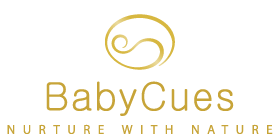Pregnancy prep for emotional infant connection

Let’s get straight into it…
Have you ever stopped to think about the kind of emotional legacy you want to leave for your child?
I know, it’s probably last thing on your mind during pregnancy given there is so many things to think about and attend to – baby names, health check-ups, the fact you can no longer see your toes.
But how you are going to show up for your infant as they evolve and the strong emotional foundation that will become there's, is in your hands to inspire. It deserves thinking about, yes? And what better time to do this but during pregnancy, as you step into being preventatively proactive, either by yourself or with your partner.
This is something that was one of those aha moments that I had when chatting with Stephanie Pinto, a multi-award-winning Emotional Intelligence specialist, international speaker and author of the book Chaos to Connection. As we were talking, I said, "Imagine if unpacking and reparenting ourselves during the pregnant stage was a standardised thing that we all know needs to happen? A bit like antenatal classes. Imagine how much that might change for our children and the parent relationship?"
Well after our chat, this thought lingered for me. How can we make that happen?
Anyone that knows my work, knows I love to uplift preventative intervention. So, I began to think about the questions that one might ask themselves to even start the process of building their emotional legacy. What transpired are some introductory questions, fifteen of them, that I feel will help you brush off the cobwebs of your own emotional childhood memories and either keep, tweak or perhaps throw away that which you do or don't want to hand down to your child. Because the time you take now to cultivate a pathway for their emotional intelligence not only effects every relationship they will have in their future, but on mass, can help shape our next generations legacy.
But before we get into the free resource, let’s dive a little deeper on emotional intelligence so you can better understand what this undertaking may mean for you…
Click on the image to listen to Stephs and my chat in the BabyCues Community
What is emotional intelligence?
Being emotionally intelligent parents means understanding your own emotions, recognizing your child’s needs, and knowing how to respond with empathy and care. Emotional intelligence offers a pathway to cultivate deeper connection with your child and each other as you navigate the complexities of parenthood together.
Unpacking
In order to raise emotionally intelligent children, one must first be aware of their own emotional intelligence and possible parenting styles, which more often than not, comes from our own childhood experiences.
As Stephanie outlines in her book, there are three parenting styles that many of us were birthed into as our parents handed down the emotional program that was given to them. Those parenting styles are…
- Dismissive and disconnected e.g. "Oh, come on, it’s a scratch” or “It doesn’t matter. Just hurry up.”
- Critical and condemning e.g. “Boys don’t cry! Stop being such a baby” or “Just be normal"
- Unaware and unconscious e.g. “You’ll be alright in a minute” or “Never mind. Off you go.”
Feel that compression inside you as you read those words?
Is that a feeling that you, or we as a human race, want to cultivate for our children?
Of course not, because it’s pretty easy to see how a child might grow to understand that what is happening for them doesn’t matter, or that their emotional expression should be repressed to suit the status quo of another, yes? And this is the last thing that the majority of parents want for their child.
So how can you, as pregnant parents, better prepare yourselves to navigate the intense moments where you may feel tested, or your parenting map of the past may come up and surprise you as you say something that you never wanted to say to your child – and while you may think that won’t happen, from a mother that thought the same, it simply does because we are not perfect and nor are we trying to create perfection. Perfection isn’t possible. But awareness, well that’s the key that in each moment, allows us to restructure our response so our children can evolve and explore themselves freely in an environment that allows reciprocal emotional intelligence.
"Perfection’s a myth we chase in vain,
a fleeting dream, a constant strain.
But in the now, where truth resides,
awareness blooms, and peace abides."
Reparenting – what is it?
Reparenting is a therapeutic approach where individuals reconnect with their inner child to heal unresolved childhood wounds and unmet emotional needs. This process involves nurturing, comforting, and guiding oneself in the same way a caring parent would support a child in order to reframe the potential “programs” that their parents embedded, to provide understanding and from the perspective of recalibrating our own emotional intelligence to ready us for parenting, establish a fresh blueprint that will complement the fulfilling family relationships that you’d like to nourish.
Shaping your emotional blueprint
While you don’t have to have all the answers right away, taking the time to come together and map out how you’ll approach the emotional legacy you’d like to uplift, can make a world of difference for your child and yourselves as a mother, father, and couple.
So, I suggest you take this time to reflect, talk, and plan how you want to cultivate your legacy of compassion and empathy for your little one by working through these fifteen questions in my free booklet, Pregnancy Prep for Infant Connection, which also has a Feeling Wheel to enable clarity as you chat with each other. This is also something that I found very useful to use for my son to express his feelings in a more expressive meaningful way for him. You'll find the booklet in my BabyCues Infant Gut & Maternal Health Community which is free to join at the moment, or you can simply download here.
Taking this step to nurture yourself and therefore your child by asking these questions, is such a beautiful inclusive way to begin your parenting journey together. I’d love to hear how it goes for you, so do let me know.




